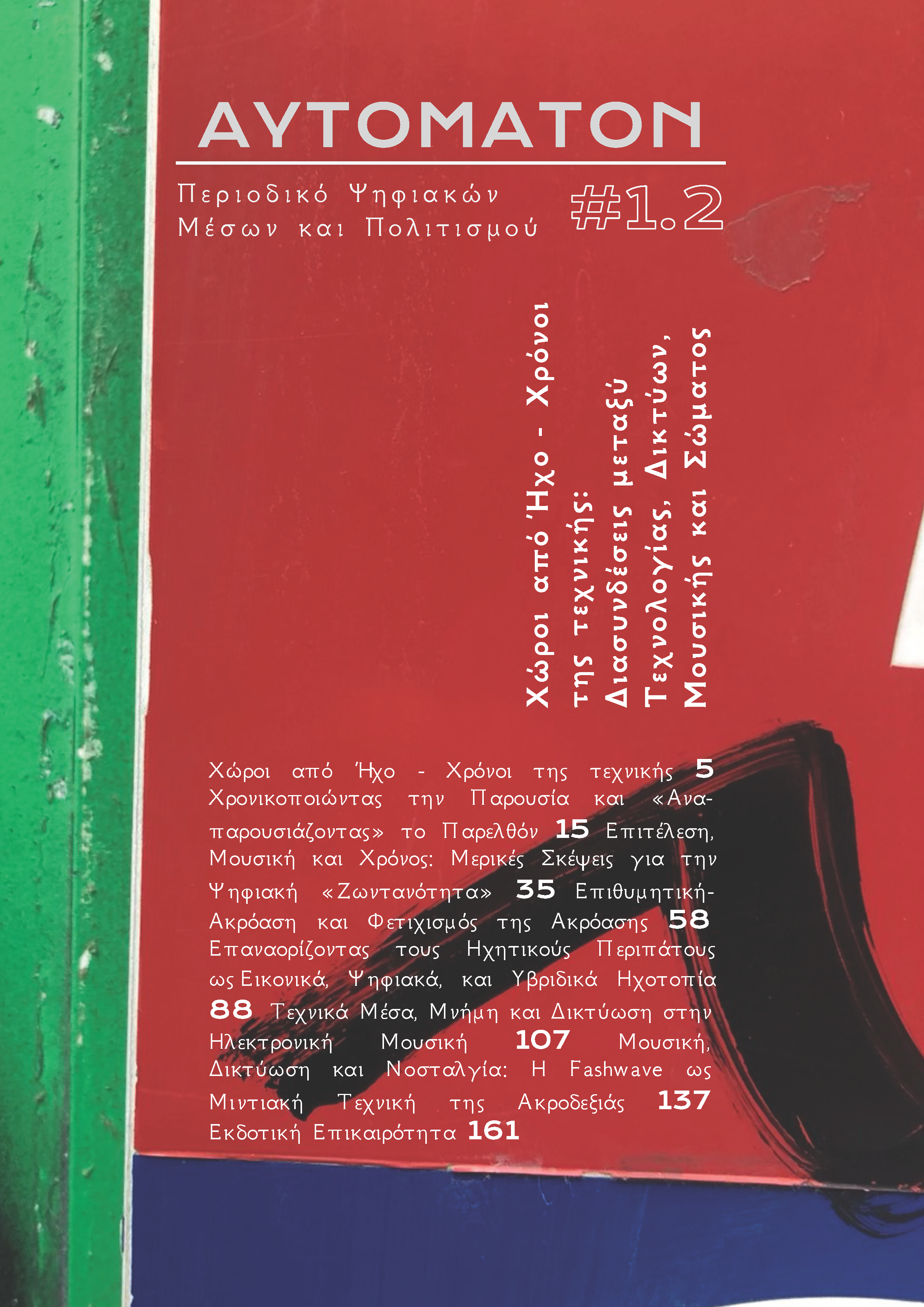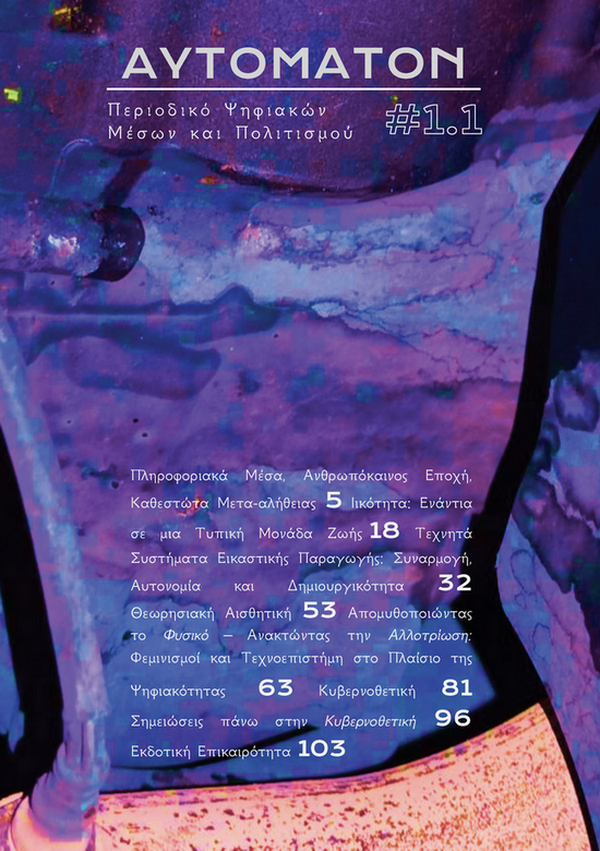Επιθυμητική-ακρόαση και φετιχισμός της ακρόασης
Abstract
Για αυτές και αυτούς που αφουγκράζονται τις φωνές των νεκρών, ο συγγραφέας αντλεί την ιδέα ότι η ψευδαίσθηση – την οποία αποφεύγει να ανάγει «ως μια εκδήλωση παθολογίας, είτε υστερική είτε σχιζοφρενική» – δεν είναι παρά «ένας τρόπος ακοής που λειτουργεί με βάση τα ίχνη», και μάλιστα περισσότερο από οποιονδήποτε άλλη. Η ίδια βασική αρχή περί της διαίσθησης ισχύει και στην μυθοπλαστική ακρόαση. Ή στον φετιχισμό στην ακρόαση· μια έννοια που, από τον Αντόρνο και έκτοτε, έχει μειωθεί σε κλισέ: αλλά εδώ πρόκειται για έναν φετιχισμό που κάθε άλλο παρά παθολογικός είναι. Δηλαδή, ο φετιχισμός είναι στην πραγματικότητα συστατικό της ακρόασης στον βαθμό που η ακρόαση ίσως ουσιαστικά συνεπάγεται την υπερεκτίμηση του ηχητικού. Σε αυτό το άρθρο, βρίσκονται μερικές αξιοσημείωτες ίδεες που ανανεώνουν τον προβληματισμό σχετικά με την αξία: την αξία της ακρόασης, και την αξία στην ακρόαση.
Article Details
- How to Cite
-
Κυριακόπουλος Λ. (2022). Επιθυμητική-ακρόαση και φετιχισμός της ακρόασης. Αutomaton: Journal of Digital Media and Culture, 1(2), 58–87. https://doi.org/10.12681/automaton.29878
- Section
- Articles

This work is licensed under a Creative Commons Attribution 4.0 International License.
Authors wishing to publish articles in this journal agree to the following terms:
1. The Authors retain the Copyright and grant the journal the right of first publication while at the same time the copyright of the work is protected under the Creative Commons Attribution License which allows third party licensees to use the work as they wish provided they acknowledge the work's authorship and initial publication in this journal.
2. Authors may enter into separate additional contractual arrangements for the non-exclusive distribution of the published journal version of the work (for example, posting it to an institutional repository or publishing it in a book), with acknowledgment of its initial publication in this journal.
3. Authors are allowed and encouraged to post their work online before and during the submission process (e.g. on their website) as this can lead to productive exchanges as well as earlier and more citations of published work (See The Effect of Open Access).




